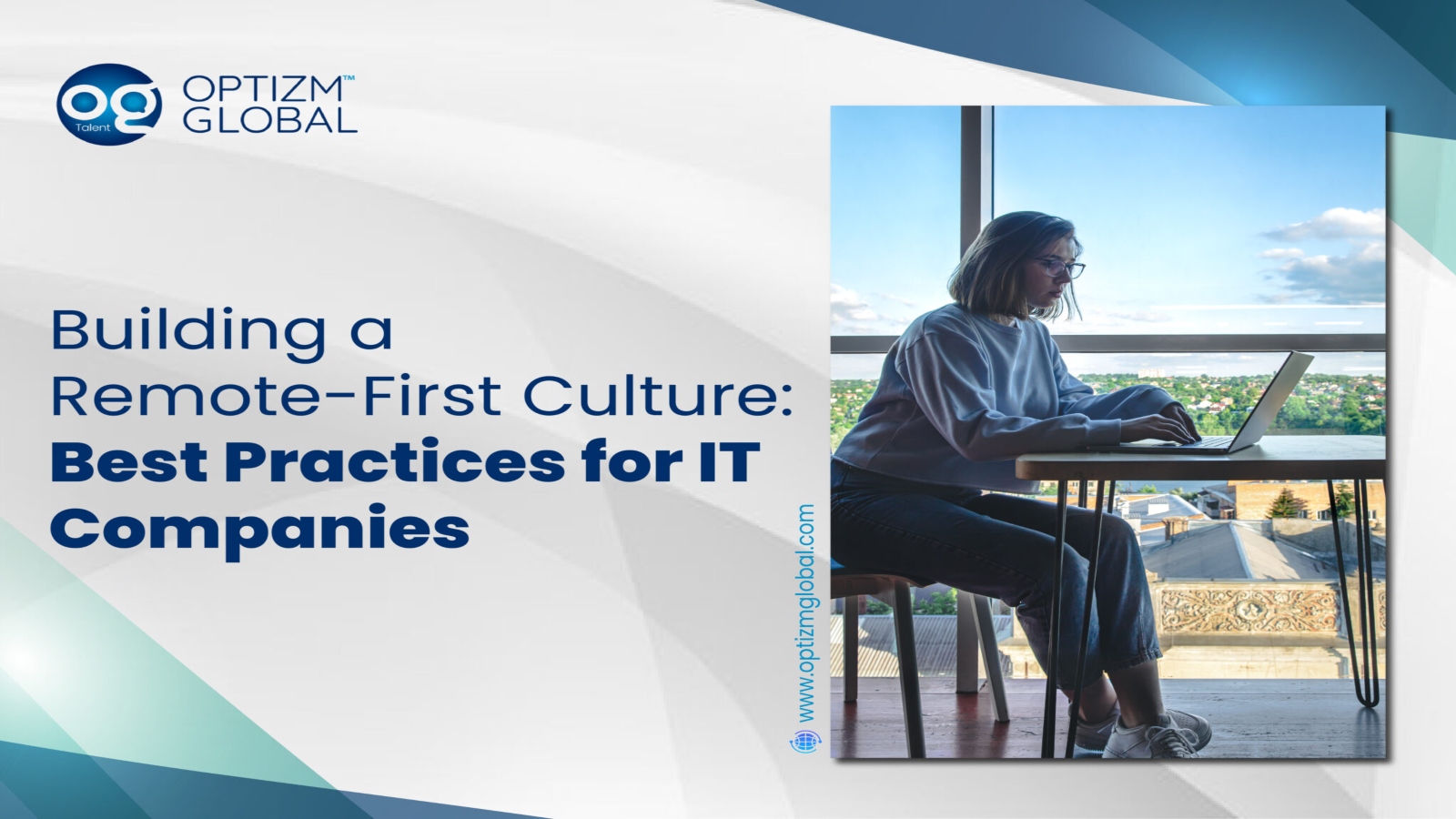The rapid advancements in technology and evolving work trends have transformed business operations, making remote work a standard practice.
IT companies now face a range of challenges and opportunities in this transition. Adopting a remote-first culture enables them to ensure business continuity, attract and retain talented professionals, increase productivity, and foster innovation.
This blog will present the best practices for building a robust remote-first culture in IT companies.
Establishing clear communication channels
Clear communication is pivotal for remote work success. IT companies should use communication tools that help all team members collaborate effectively, regardless of location. Tools like Microsoft Teams, Zoom, and Slack can help with real-time communication, while project management platforms like Trello, Jira, and Asana can help track progress and maintain transparency.
To prevent information overload and maintain clarity, IT companies must establish guidelines specifying which tools to use for specific types of communication. This clarification can help run a smooth communication system, which helps every employee work efficiently within their teams.
Promoting a culture of trust and autonomy
In a remote-first setting, micromanaging can be damaging. Instead, IT companies should promote a culture of trust and independence. This approach includes establishing clear objectives, defining targets, and enabling employees to decide how they achieve their tasks. Trusting employees to manage their workload and time helps maintain a sense of accountability and improves job satisfaction.
Managers of IT companies must focus on outcomes rather than the number of hours logged in by every employee. Regular performance reviews and feedback sessions can contribute to employees staying on track with their workload and continuing to develop professionally.
Investing in the right technology
Having the right technology is paramount when it comes to supporting a remote-first culture. This process would include hardware, software, and secure connectivity solutions. IT companies must ensure all employees can access high-quality laptops, monitors, and other necessities for their job roles. Regarding software, IT companies must invest in collaborative tools that integrate smoothly with each other.
Cloud-based solutions like Microsoft 365 and Google Workspace are beneficial for remote collaboration. Moreover, IT companies can also implement cybersecurity measures such as two-factor authentication, VPNs, and encryption to protect sensitive data and maintain the integrity of the company’s IT infrastructure.
Prioritizing employee well-being
The workforce’s well-being must be a top priority in a remote-first culture. IT companies must encourage healthy work-life balance by setting boundaries around working hours and discouraging after-hours communication. IT companies must also provide access to mental health resources, wellness programs, and regular breaks to help eradicate the stress and burnout associated with remote work.
Moreover, by conducting regular surveys to assess employee satisfaction and gather feedback on remote work policies, IT companies can remain updated regarding the mindset of their workforce and make changes accordingly to better support the needs and preferences of the team.
Embracing flexibility
A primary advantage of embracing a remote-first culture is the flexibility it offers. Allowing employees to work from various locations and choose their preferred work hours can improve productivity and morale.
Flexible schedules can cater to different time zones, personal obligations, and peak productivity times. However, it’s important to maintain some overlap in work hours to encourage collaboration. Setting core hours when all team members are accessible guarantees crucial meetings and discussions can occur without compromising flexibility.
Developing social connections
Another challenge of remote work is the potential for employees to feel isolated. IT companies need to develop social connections to build a cohesive team proactively. Virtual team-building activities, informal chat channels, and online coffee breaks can help recreate the social interactions that naturally occur in a physical office.
Encouraging employees to share their interests and hobbies can also help build stronger relationships between team members. Creating opportunities for cross-team interactions further increases the sense of community and collaboration within the organization and helps IT companies eradicate the issue of employees feeling isolated.
Providing opportunities for professional development
Ongoing learning and professional growth are crucial in the rapidly evolving IT sector. Remote-first IT companies should offer numerous chances for employees to enhance and progress in their careers. This prospect may involve online courses, certifications, and access to industry conferences and webinars.
By encouraging a culture of knowledge-sharing through hosting regular internal workshops and tech talks, IT companies can provide opportunities for professional development. Additionally, mentorship programs can effectively promote growth and retain the workforce of the companies.
Celebrating successes and recognizing achievements
Recognizing and celebrating achievements is pivotal for maintaining motivation and a positive work environment. IT companies can accomplish this in a culture prioritizing remote work by hosting virtual celebrations, implementing recognition programs, and giving shout-outs during team meetings.
By highlighting individual and team accomplishments, IT companies can boost morale and create a motivating environment. The recognition must be inclusive so that all contributions, big and small, are recognized.
Conclusion
In conclusion, establishing a remote-first culture requires strategic planning and dedicated effort. By prioritizing clear communication, trust, technology, employee welfare, flexibility, social interactions, professional growth, and acknowledgment, IT companies can create a thriving remote work environment.
Embracing these best practices not only boosts productivity and innovation but also enhances the company’s reputation as a top employer. Ready to explore our tech recruiting process?
Click here: IT Recruiting – Optizm Global.






